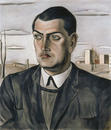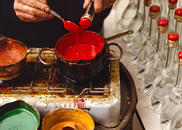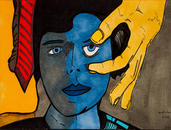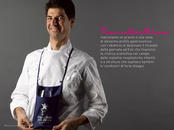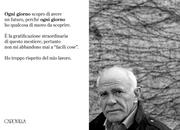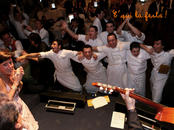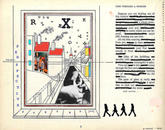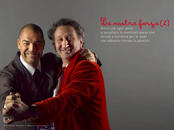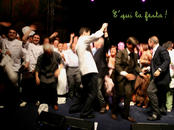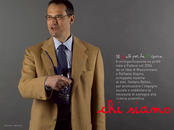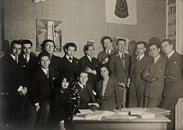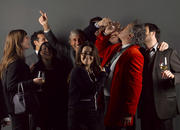What hope does love offer?
The question, which seems to have taken from a romance novel is at the center of one of the most famous studies carried out by the Surrealists. Yes, that group of rebels (to the moral and social conventions of the so-called bourgeoisie) that swept across Europe, especially Paris, at the beginning of the last century.
The frantic and diverse group of Breton, Aragon, Eluard, Tzara, Artaud, Dali, Ernst, Magritte, Ray, Miro and company of writers and canvas-smearers. The answer, gorgeous and perfect in its radicalism, was written by one of them, Luis Buñuel, who in his enjoyable autobiography (My Last Sigh) states: "Love seemed essential to life, for every action, every thought, for any study. Today (he wrote in the early 80s), according to what they say, love and faith in God are in the same boat. Love tends to disappear. It is considered a historical phenomenon, a cultural illusion. It is studied, analyzed, and, if possible, it heals. I protest. We were victims of an illusion. Even if someone finds it hard to believe, we really loved. "
Apart from the crystalline beauty of these words, it is worth trying to understand the meaning that the Spanish director gives to the word love (which seems to be an incomprehensible "ghost" that populates our conversations and fantasies, just like the word "freedom.”) I try to think of what else I can associate with the word love in order to better understand it, to try to grasp a more concrete meaning. I look closely at the works and actions of the surrealists, who considered love as the focus of their work, or rather, of their very own lives. But the actions of the great lovers that history, literature and religion have passed down to us are often popular tales, but no less significant on the social, moral, and intellectual level. I try to look closely even at the people I know who seem to love with true passion. And from putting them all together, a single distinctive-sign-word emerges that unites all these stories. And the word is gratuitousness (the surrealists were scattered - scattered in their ideals - when they fought against the politics and money, not by chance).
Recently, two different times in professional situations, I found myself thinking about the strength of gratuitousness, which is nothing but the power of love. The first time it occurred during the preparations for the dinner that we organize every year with Gusto per la Ricerca foundation, when the most famous Italian chefs come together to create a memorable event in support of the Città della Speranza foundation (and with other non-profit organizations trying to fight childhood diseases). The fervor and the contagious joy of these men and their deep commitment ... is not less than normal, but far greater the night of the event. It seems as if the event, because it isn’t “work,” sets them free, free to explore their genuine almost childlike force. It is a spectacle to watch them, admire them and learn.
The other moment occurred while working with Gianni Capovilla. Over the past couple of years, having spent a lot of time together (we created the institutional image of his glorious company,) I had the chance to really get to know the character of a man who I knew previously only through his incomparable fruit distillates. Inside his company, I saw him take what might be considered reckless actions to ensure absolute quality, regardless of any judgment. Well, I am sure that even with less radical choices the consumer perception, even the most experienced and cunning, would be identical. I think he knows this himself. Why does he do then? Why does he always prefer laborious and expensive actions? A caveat (which also brings us to a new key word) he underlines himself, with his characteristic serenity in a hoarse voice, thick with nicotine: "Every day, I find that I have a future, because every day I have something new to discover. It is the extraordinary gratification of my work, so I do not ever surrender to the easy way out. I have too much respect for my work." The word respect. Self-respect, above all, to then be able to respect others. Self-respect: precedes gratuity, and therefore love (in relation to people, but also one’s own work).
I would like to conclude my reflection with the words that the unforgettable Gino Veronelli dedicated to Gianni Capovilla: "If you don’t do what you do, no one else will. It is not so much a responsibility, as your life." A fitting compliment for our Capo, (defining its uniqueness, also comes as a severe reprimand to the rest of us) on behalf of a true surrealist, anarchist, madly in love with the beautiful and good, who first opened his horizons in the field of food and wine to a whole nation.
13/01/2012 Filippo Maglione

